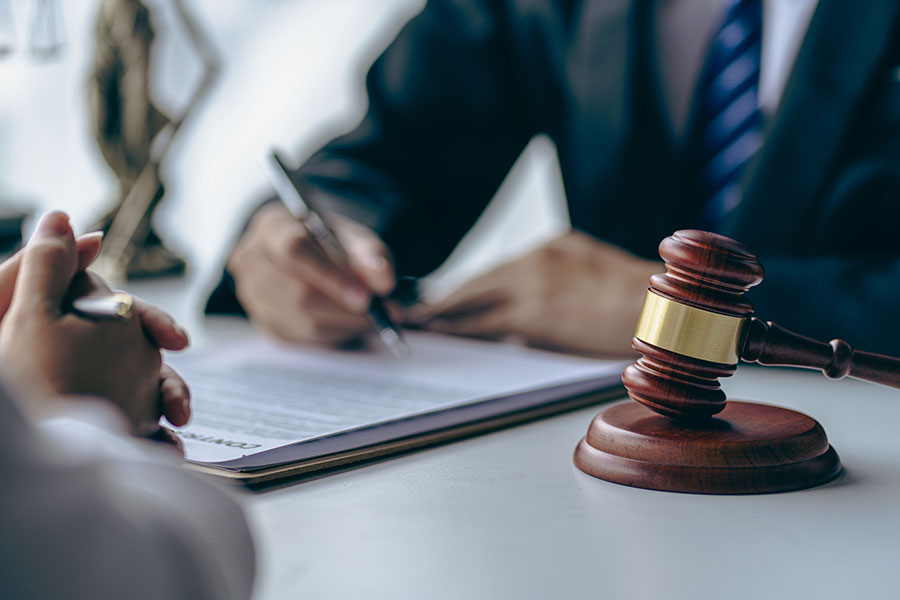One of the common situations our clients seek our legal expertise for are instances where a family member or partner has made an allegation of a form of domestic violence against them. It is often the case that clients present themselves to us having been charged with common assault and had an apprehended violence order (AVO) taken out on them by NSW Police, on behalf of the alleged victim.
Such a scenario generally involves the alleged victim initiating contact with the Police and filing a signed report, with the subsequent AVO resulting in the accused being unable to return home.
The Police case therefore largely relies on the co-operation of the alleged victim.
WHAT HAPPENS IF THE ALLEGED VICTIM OF DOMESTIC VIOLENCE DOESN’T TURN UP TO COURT?
For a number of reasons, an alleged victim may decide to not turn up to Court and partake any further in the process. As such, our clients often seek our advice as to what happens if the alleged victim decides to take this approach.
A large part of the prosecution’s domestic violence case often relies on the co-operation and evidence of the alleged victim, so their ceasing of co-operation and failure to turn up to Court is likely to have a large impact on the process and outcome.
In such situations, you could have a strong case for obtaining costs from the prosecution, in accordance with Section 214 of the Criminal Procedure Act 1986 (NSW). Our expert lawyers can discuss this with you with a full analysis of your matter.
IMPLICATION 1 – TRIAL DELAYED AND/OR CHARGES WITHDRAWN
The prosecution may decide to seek an adjournment. If the victim’s testimony is critical to the prosecution’s domestic violence case and to a fair and balanced trial, the Judge or Magistrate may likely consider it necessary to delay the trial until the victim appears. If the victim remains absent and fails to appear, the charges may be withdrawn by the prosecution or dismissed by the Judge or Magistrate.
The decision on how and whether to proceed would largely depend on the strength of any remaining evidence.
IMPLICATION 2 – PROCEEDING WITHOUT THE VICTIM
The prosecution may seek to proceed with the case in the absence of the alleged victim in a domestic violence case, based on other evidence that they seek to rely on, such as DNA, video and audio footage and other eyewitness testimony.
The prosecution may also seek to tender the alleged victim’s previously signed statement as evidence. An objection to this is likely to succeed and the prosecution would subsequently fail to have the signed statement entered into as evidence, unless they satisfy an exception to the hearsay rule, pursuant to Section 65 of the Evidence Act 1995 (NSW).
IMPLICATION 3 – ARREST WARRANT AGAINST ALLEGED VICTIM
The Judge or Magistrate may decide to issue an arrest warrant for the victim if they fail to turn up to Court, despite having been subpoenaed. This is pursuant to the ‘Evidence Act 1995 No 25 169, Failure or refusal to comply with requests’. The arrest warrant can be granted with the intention and purpose of securing the alleged victim’s attendance at Court. The Court may decide against issuing an arrest warrant if it determines the alleged victim’s absence to be justified.
CASE BY CASE BASIS
Courts and the NSW Police will respond to the actions or inaction of an alleged victim on a case-by-case basis. It is important that you contact us immediately so that we may assess the best way to respond to your situation.
CONTACT US NOW FOR A FREE CONSULTATION
If you have been charged with a domestic violence offence, call Criminal Lawyers Group anytime on 02 8815 8177 for expert advice from a senior criminal lawyer. We will provide an initial free consultation and work out a plan of attack in your case to give you the best change of obtaining the best possible outcome in your case.
